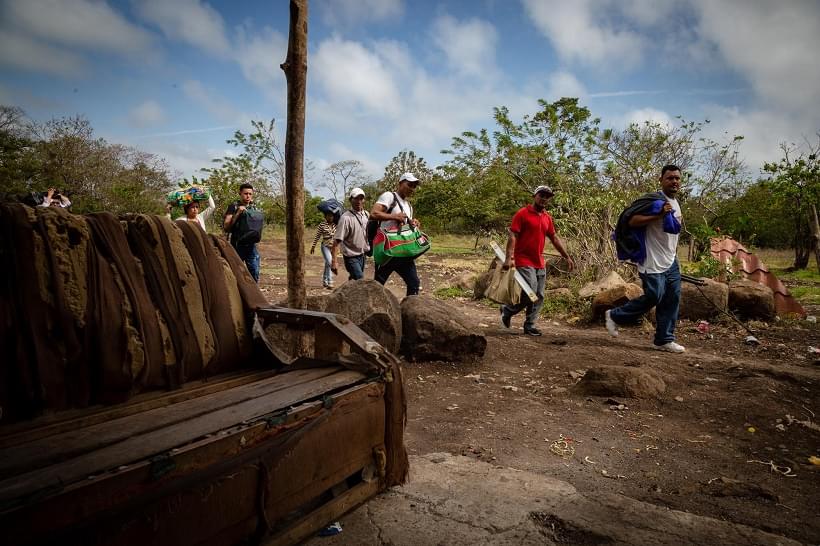The administration of Rodrigo Chaves signed this Wednesday, November 30, two decrees that establish new immigration provisions and restrictions for refugee applicants, with the aim of reducing the entry of economic migrants, who mostly come from Nicaragua.
The regulations, which have not yet been made official since they have not been published in La Gaceta of that country, indicate that the purpose is to limit the movement of citizens and reduce the granting of work permits.
The first decree is about a modification to the refuge regulation on the granting of work permits, in which they establish that they will not be granted to the applicants immediately, “but they must comply with the internal procedure established by the institution and that will be communicated in a timely manner.”
Related news: They fear that Costa Rica’s announcement to limit support for economic migrants will foster a culture of xenophobia
They explain that the second concerns the Temporary Special Category for Nationals of Cuba, Nicaragua and Venezuela, both as part of the immigration provisions mentioned on November 16, when they announced that “measures were being taken” to prevent economic migrants from continuing using the political refugee regime to get to work and settle in the Central American nation.
It also establishes that permits for those who have already been granted will be renewed only if the person is registered with the Costa Rican Social Security Fund (CCSS).
In addition, they point out that any new application for international protection must be submitted within one calendar month from the day of entry into the country without the need to request an appointment, and must be presented in person. “For this, the person must come directly from his country of origin, if not, he must justify the reasons why he did not request said protection in the country where he was.”
Given this, refugee applicants “will no longer be able to leave Costa Rica for any reason, while their application is being processed. If it is done, it will be understood as an abandonment of the process and it will be archived definitively.
The document establishes in the second point that the Temporary Special Category request “has suffered an abusive use of the figure that negatively affects refugee applicants” there are those who truly deserve international protection and who must wait for months and even years to have a resolution on their refugee status.
Until now and according to official information, the General Directorate of Migration and Aliens has received 222,056 refugee applications since 2018, of which 172,689 are still pending resolution; Likewise, the institution has detected that between 80% and 90% of the people who request refuge do not qualify within the definition of this international protection, including economic migrants or those who have been living in the country for years and have never been regularized.















